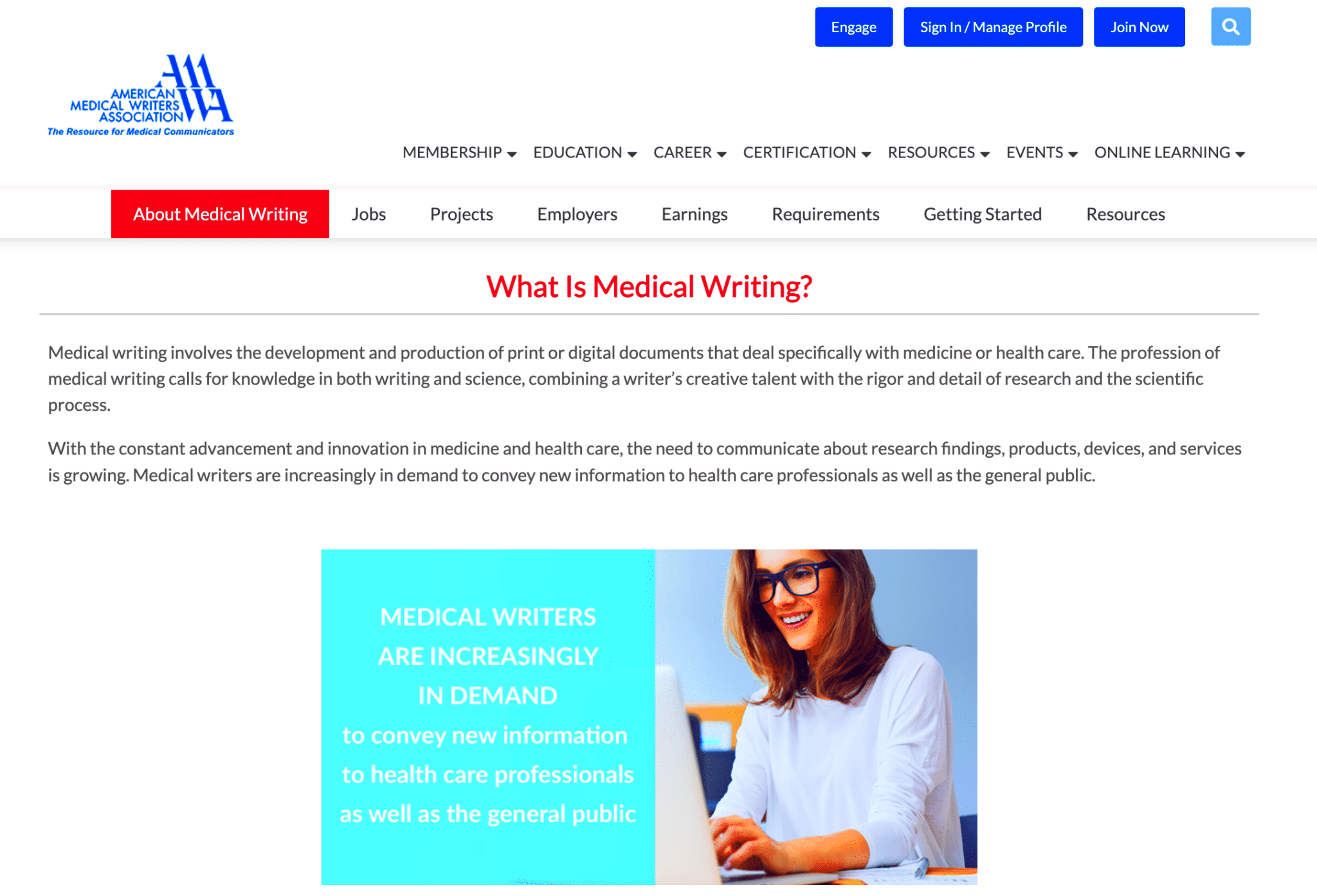Medical writers play a crucial role in the healthcare industry. They are responsible for creating a variety of documents, including research papers, regulatory submissions, and educational materials. Their work ensures that complex medical information is communicated clearly and accurately to a range of audiences.
Typically, medical writers work with pharmaceutical companies, healthcare organizations, or medical communication agencies. They collaborate with researchers, clinicians, and other professionals to produce high-quality content. Some of the key types of documents they create include:
- Clinical study reports
- Regulatory submission documents
- Manuscripts for publication in medical journals
- Patient education materials
Overall, the role of a medical writer is vital in translating complex scientific concepts into accessible information, helping to advance healthcare communication.
Essential Skills for Freelance Medical Writers

To succeed as a freelance medical writer, you need a specific set of skills. Here are some essential skills that can set you apart:
- Strong Writing Skills: Clear and concise writing is fundamental. You must be able to express complex ideas simply.
- Attention to Detail: Accuracy is key in medical writing. You must ensure that all information is correct and well-researched.
- Understanding of Medical Terminology: Familiarity with medical terms and concepts is crucial for creating relevant content.
- Research Skills: The ability to gather information from credible sources will enhance the quality of your writing.
- Time Management: Freelance writers often juggle multiple projects. Good organizational skills help you meet deadlines.
Having these skills will not only help you write effectively but also build your reputation in the medical writing field.
Also Read This: How to Post on Fiverr Mobile: A Step-by-Step Guide
Educational Background and Qualifications Needed

While there is no strict educational path to becoming a freelance medical writer, certain qualifications can enhance your prospects. Here are some common educational backgrounds and qualifications that many medical writers possess:
- Bachelor's Degree: A degree in a related field such as biology, nursing, pharmacy, or communications is often beneficial.
- Advanced Degree: Some medical writers hold master's degrees or PhDs in relevant fields, which can provide an edge.
- Certification: Obtaining a certification in medical writing, such as from the American Medical Writers Association (AMWA), can enhance your credentials.
Additionally, gaining practical experience through internships or writing for scientific journals can be invaluable. It helps you understand the industry and develop the necessary writing skills to thrive as a freelance medical writer.
Also Read This: How to Make Money on Fiverr: A Comprehensive Guide
How to Build a Portfolio as a Medical Writer

Building a strong portfolio is essential for showcasing your skills as a medical writer. A well-crafted portfolio demonstrates your writing abilities, areas of expertise, and versatility to potential clients. Here are some steps to create an impressive portfolio:
- Include Varied Samples: Your portfolio should feature a range of writing samples. Include clinical study reports, patient education materials, and any articles or blog posts you have written.
- Use Real Projects: If possible, include work from actual projects you have completed. This adds credibility and shows clients your practical experience.
- Focus on Quality: Quality is more important than quantity. Select only your best work that reflects your ability to communicate complex information clearly.
- Highlight Your Expertise: If you have specialized knowledge in a specific area, such as oncology or pediatrics, showcase samples relevant to that field.
- Update Regularly: Keep your portfolio fresh by updating it with new projects and removing older, less relevant work.
A well-organized portfolio, whether in a PDF format or an online website, allows potential clients to easily view your writing style and capabilities. This can greatly enhance your chances of landing freelance jobs.
Also Read This: How to Get a Refund on Fiverr
Finding Freelance Medical Writing Opportunities
Finding freelance medical writing jobs can feel challenging, but with the right strategies, you can uncover great opportunities. Here are some effective ways to find work:
- Networking: Join professional organizations such as the American Medical Writers Association (AMWA). Attend conferences and webinars to connect with others in the industry.
- Online Job Boards: Websites like Upwork, Freelancer, and ProBlogger often have listings for medical writing gigs. Create a strong profile to attract potential clients.
- LinkedIn: Use LinkedIn to showcase your skills and connect with industry professionals. Join relevant groups where job postings are shared.
- Direct Outreach: Research companies that hire medical writers and reach out directly. A personalized email introducing yourself and your services can lead to job opportunities.
- Freelance Platforms: Explore freelance platforms dedicated to medical writing. These can help you find clients specifically looking for your skills.
By combining these approaches, you can effectively find and secure freelance medical writing opportunities that match your interests and expertise.
Also Read This: How to Change Your Fiverr Rating: A Step-by-Step Guide
Setting Your Rates as a Freelance Medical Writer
Determining how much to charge as a freelance medical writer can be tricky. Setting the right rates is essential to reflect your skills and experience while remaining competitive. Here are some factors to consider when setting your rates:
- Experience Level: New medical writers may charge lower rates to build their portfolio, while experienced writers can command higher fees based on their expertise.
- Type of Project: Different types of writing (e.g., regulatory documents vs. marketing materials) may have varying market rates. Research industry standards for each type.
- Time Investment: Consider how long each project will take. If a project requires extensive research or has a tight deadline, adjust your rate accordingly.
- Client Budget: Be mindful of your client’s budget. Some clients may be willing to pay more for quality, while others may have tighter constraints.
Many medical writers choose to charge per hour, per word, or per project. Here’s a rough breakdown:
| Payment Structure | Typical Rate |
|---|---|
| Hourly Rate | $50 - $150 |
| Per Word Rate | $0.15 - $1.00 |
| Per Project Rate | $500 - $5,000 |
Ultimately, setting your rates should reflect your skills, the value you bring to clients, and market trends. Don’t be afraid to adjust your rates as you gain experience and expand your portfolio.
Also Read This: Accepting Payment as a Freelancer
Managing Your Time and Projects Effectively
Time management is crucial for freelance medical writers. With multiple clients and deadlines, you need to stay organized and efficient to succeed. Here are some strategies to help you manage your time and projects effectively:
- Use a Planner: A planner or digital calendar can help you track deadlines and schedule your tasks. Make it a habit to update it daily.
- Set Priorities: Not all tasks are created equal. Use the Eisenhower Matrix to categorize tasks by urgency and importance, ensuring you focus on what matters most.
- Break Down Projects: Large projects can feel overwhelming. Break them into smaller, manageable tasks with individual deadlines to keep yourself on track.
- Limit Distractions: Create a dedicated workspace and minimize distractions. Consider using apps that block social media during work hours.
- Set Specific Working Hours: Establish a routine by setting specific working hours. This helps create a balance between work and personal life.
By implementing these time management strategies, you can enhance your productivity and ensure that you meet deadlines while maintaining a healthy work-life balance.
Also Read This: How to Print Invoices from Fiverr
Tips for Success in Freelance Medical Writing
Success as a freelance medical writer goes beyond just writing well. Here are some tips to help you thrive in this competitive field:
- Build Strong Relationships: Networking is vital. Establish relationships with clients, peers, and professionals in the healthcare industry. This can lead to referrals and repeat work.
- Stay Updated: The medical field is constantly evolving. Stay informed about the latest research, guidelines, and trends to enhance your writing and credibility.
- Be Adaptable: Different clients have different needs. Be open to feedback and willing to adjust your writing style or approach to meet their requirements.
- Seek Continuous Learning: Attend workshops, webinars, or courses related to medical writing and your areas of specialization. Continuous learning enhances your skills and marketability.
- Maintain a Professional Online Presence: Create a professional website or LinkedIn profile showcasing your portfolio and services. This helps potential clients find you and understand your expertise.
By applying these tips, you can increase your chances of success in freelance medical writing and build a rewarding career.
Also Read This: How to Pay on Fiverr After a Deal is Agreed
Frequently Asked Questions
Here are some common questions that aspiring freelance medical writers often ask:
- What qualifications do I need to become a medical writer? While a degree in a relevant field is beneficial, experience and a strong portfolio are often more important.
- How do I find clients? Networking, online job boards, and direct outreach are effective ways to find freelance medical writing opportunities.
- What should I charge as a medical writer? Rates vary based on experience, project type, and client budget. Research industry standards to set competitive rates.
- Is medical writing a stable career? Yes, with the increasing demand for clear medical communication, freelance medical writing offers good opportunities for stability and growth.
- How do I handle tight deadlines? Prioritize your tasks, break projects into smaller steps, and communicate clearly with clients about timelines to manage deadlines effectively.
These FAQs can help clarify your understanding of the freelance medical writing landscape and guide you on your path to success.
Conclusion
In conclusion, starting a career as a freelance medical writer can be both rewarding and challenging. By understanding the role, honing essential skills, and effectively managing your time, you can position yourself for success in this dynamic field. Building a strong portfolio and networking will open doors to numerous opportunities, while setting fair rates ensures you are compensated for your expertise. With dedication, continuous learning, and a commitment to quality, you can thrive as a freelance medical writer and make a significant impact in the healthcare industry.




